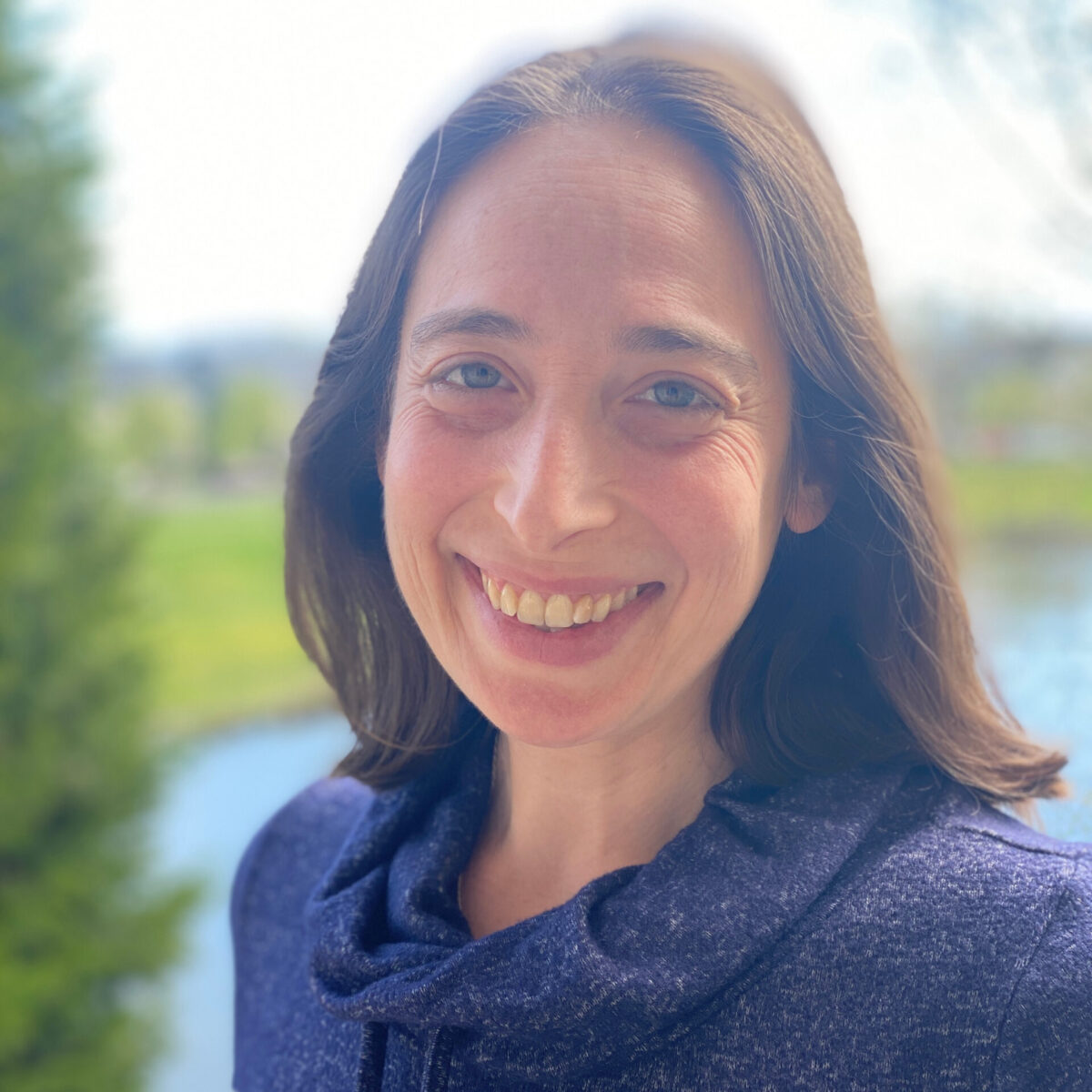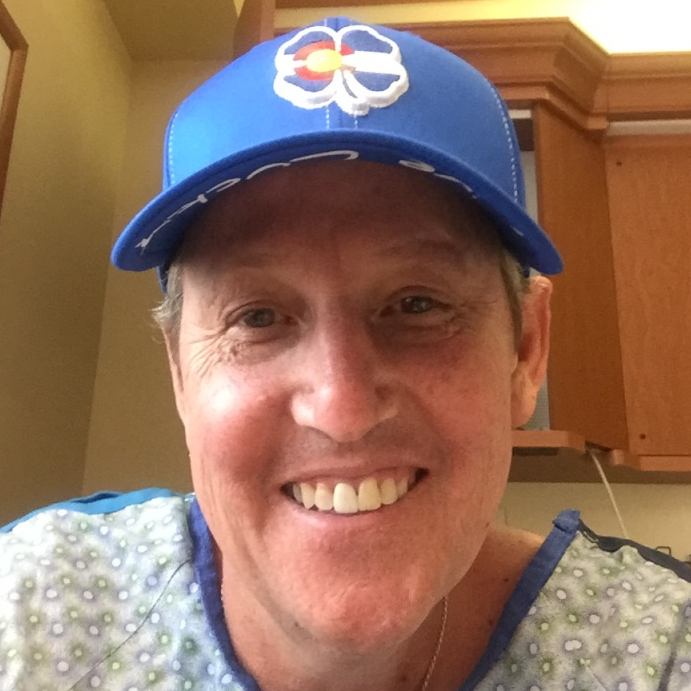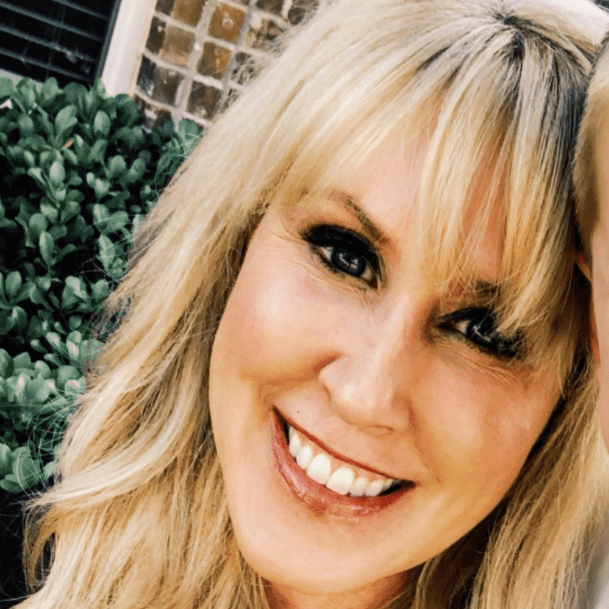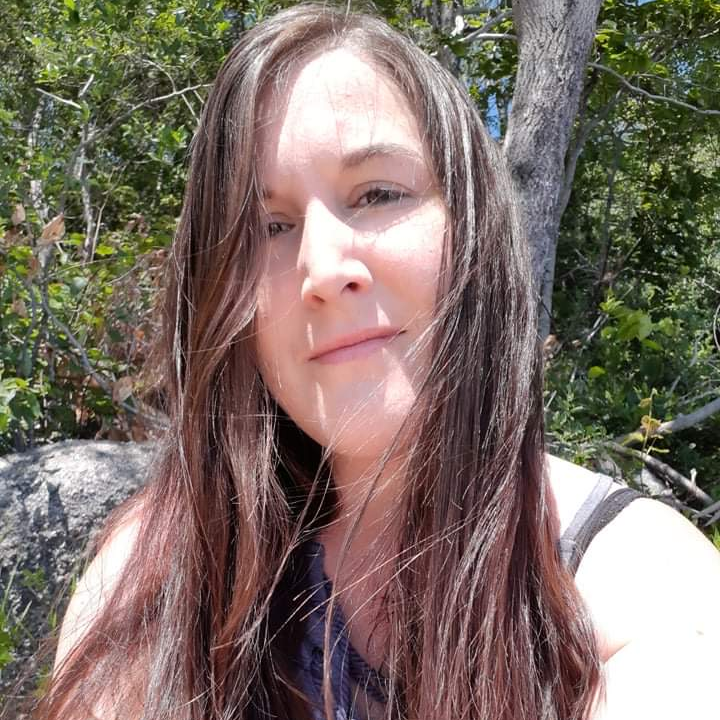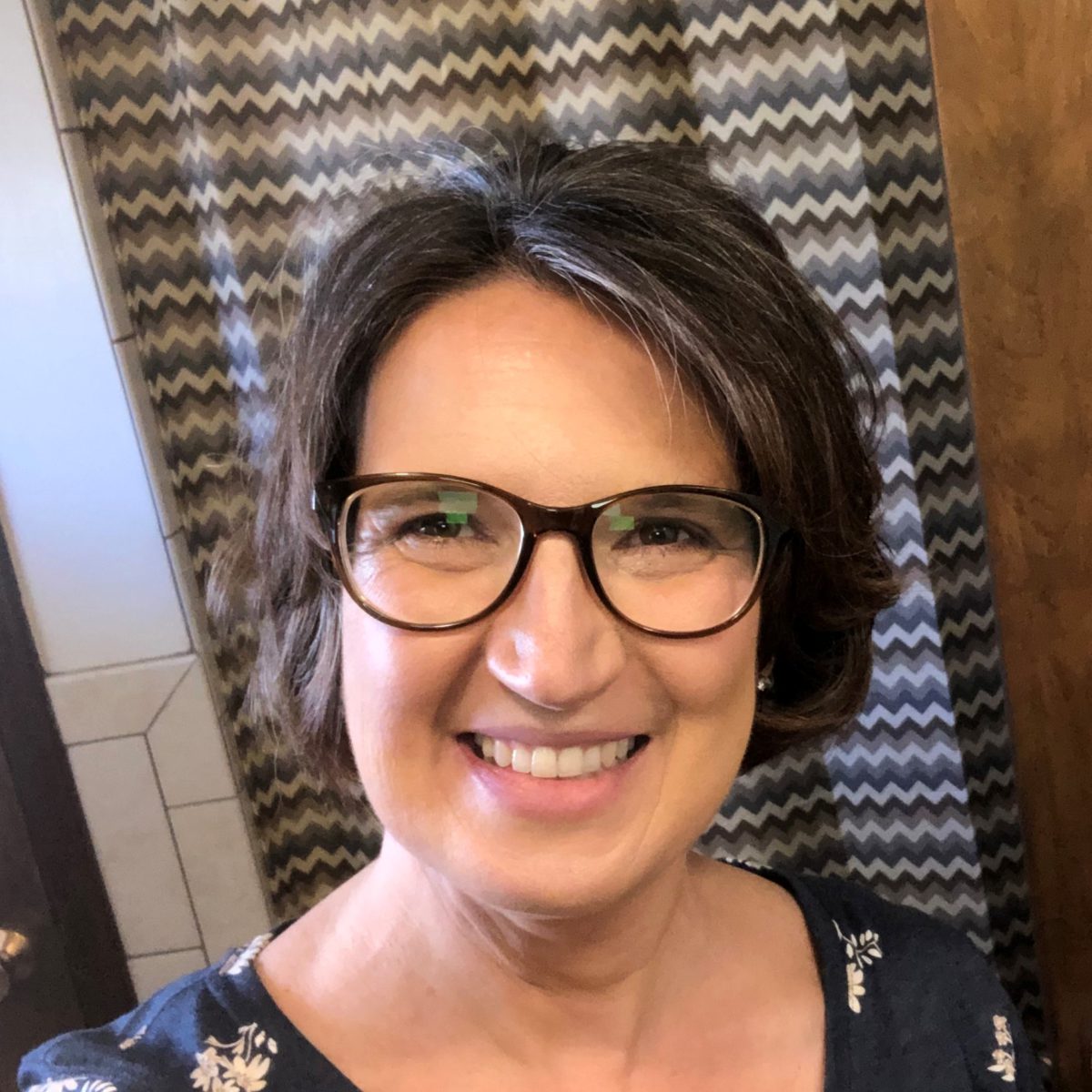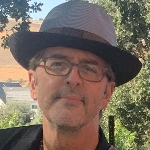Sarah’s Multiple Myeloma Story
At 22 years old, Sarah was looking forward to graduating college and beginning her life, but following a malaria diagnosis, she became severely anemic. Many tests later, she was examined for multiple myeloma and tested positive.
Sarah felt derailed from the track she was on, and while most of her peers were making plans to begin careers and move out of state, she was beginning chemotherapy.
Rather than processing her diagnosis right away, she tried to live life as normally as possible, listening to doctors but avoiding learning too much about her diagnosis. Years after cancer, she started therapy to process her cancer journey and what life in light of a myeloma diagnosis would look like.
Eighteen years after receiving her myeloma diagnosis, Sarah shares her multiple myeloma story, including her experience with receiving a stem cell transplant, her side effects from cancer treatment, family planning after cancer, the importance of finding a support group and cancer specialist, and her advice for those on their own cancer journeys.
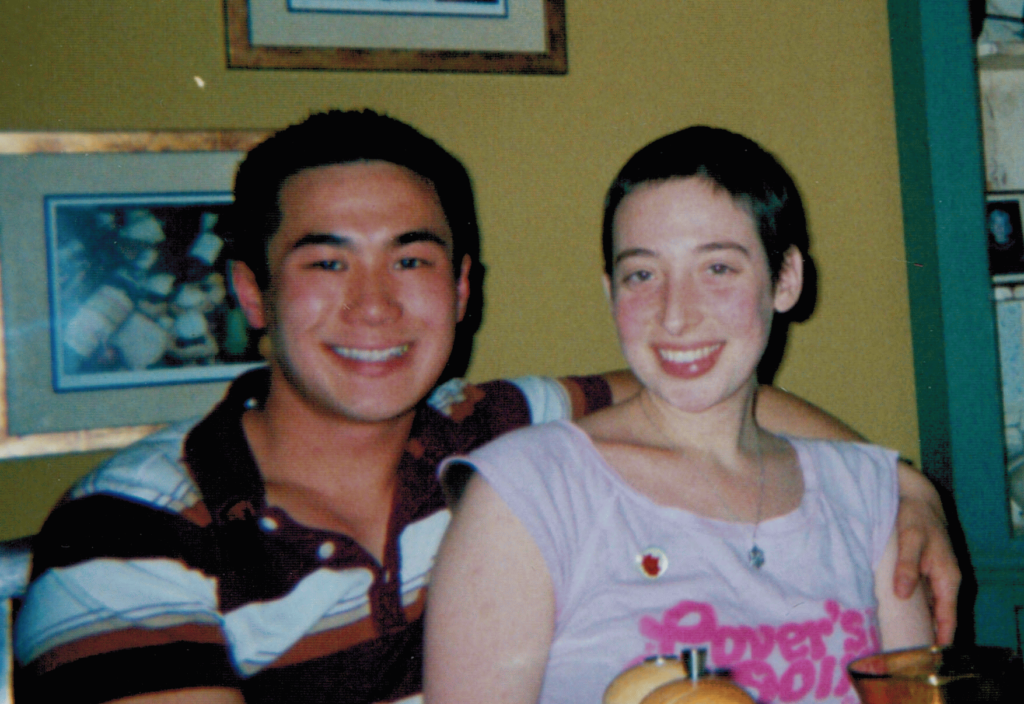
- Name: Sarah F.
- Diagnosis (DX):
- Symptoms
- Anemia
- Fatigue
- Age at DX: 22
- Treatment:
Knowing that a relapse could happen at any time changes the way you appreciate every big decision in life, period.
Sarah F.
This interview has been edited for clarity and length. This is not medical advice. Please consult with your healthcare provider for treatment decisions.
Symptoms & Diagnosis
Tell us about yourself
My name is Sarah. I live in Seattle, Washington. I love the outdoors. I love being with my two kids and my husband. I work as a nurse in the hospital and am a myeloma survivor of 18 years.
What were your first symptoms?
I was diagnosed with multiple myeloma when I was 22 years old. I was in college. In my senior year of college, I traveled to Kenya for a semester, and at the end of my time there, I got malaria. I ended up very ill in the hospital for about a week and a half.
When I had recovered fully from that and returned back to the States to finish out my senior year of college, I was feeling recovered but remained severely anemic. My red blood counts were pretty low. Based on that, as a follow-up, they had me go to the hematology clinic here in Seattle where they were testing for all sorts of things.
I went back to school to finish my senior year, and over the next 6 months, they tested me for whatever they could think of that might cause anemia in a young person. Mono, if there was a strain of malaria that was hanging on, anything that might be causing this. I was on iron supplements. None of it was giving us any reason why this was happening.
How did you feel during that time?
I felt really run down, but that was my only symptom. I was very pale, I had bad acne, I was very tired all the time, but I was recovering from malaria. I was very busy with school and activities.
Receiving a diagnosis
About 6 months after those initial symptoms, they tested me for multiple myeloma and the blood work came back indicating that that was in fact the case. They immediately sent me to Fred Hutch Cancer Center, which was our local cancer research institute, and they followed up with a bone marrow biopsy that confirmed the diagnosis.
Reacting To A Diagnosis
Did you ever suspect you had cancer?
No, never. Cancer was not on my radar at all. I had been going to this hematology clinic every couple of weeks for months as they did more tests. I was doing it because the docs were telling me to, but my mind was so focused on everything else that was happening in my life – school and peers, and figuring out what I was going to do after I graduated.
They said, “Bring somebody with you to this appointment.” I was like, I don’t have time for that. I got the diagnosis, and my doctors told me, “We think this is multiple myeloma which is cancer.” I was by myself, I had no support. I was totally blindsided. It was very memorable. It was not a happy time.
Did you know what multiple myeloma was pre-diagnosis?
No, I’d never heard of it. I think like many people, the first time you hear that word, you think they’re talking about skin cancer, melanoma. It was a very steep learning curve to understand anything about this disease, let alone mentally and emotionally come to terms with the idea that the word cancer is going to be frequently used in relation to me. That was a huge hurdle.
I think for anybody that will be difficult, for a young person, I didn’t have any peers that had dealt with any severe illnesses at that time. Cancer was something that grandparents had. Cancer was something that you saw on commercials, I didn’t have any image in my mind of what cancer, could be like or might be like for somebody that looked like me.
How did you react to your diagnosis?
I didn’t do a good job of that. I went to all my appointments. I did what I was told. I followed directions as far as taking all my meds and things and didn’t miss an appointment. I wanted to know very little about what was happening to me and I didn’t want to look at research. I got the very basics from my doctors during my appointments and I had very few questions because it was just too overwhelming, and it was very othering.
»MORE: Reacting to a Cancer Diagnosis
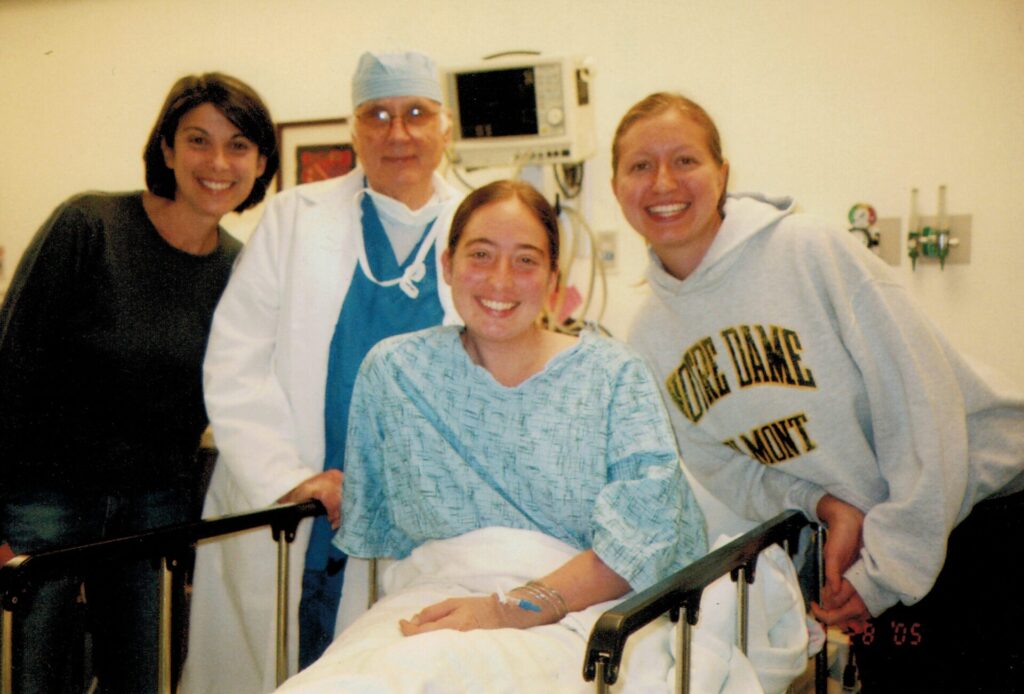
It was a very steep learning curve to understand anything about this disease, let alone mentally and emotionally come to terms with the idea that the word cancer is going to be frequently used in relation to me.
I was diagnosed 2 weeks before my graduation from college. My peer group was talking about careers, moving in with partners, moving out of state, and the next steps in very positive, exciting, and optimistic ways. It felt like all of a sudden, my whole life had been on track with my peer group and now was derailed to this totally different train. I’m on a different railroad track now and don’t know where this is going. I wanted to do everything in my power to get back on the same train track that everyone else was on.
Slowly processing a cancer diagnosis
I did not process it. I’m very grateful, I was going to college out of state from my family and my mom dropped everything and moved across the country to get an apartment with me during my treatments and be my caregiver, which I was positive I was not going to need but absolutely needed. She did the processing. She did the research. For being 22 and thinking I was a very independent adult, I was very grateful for my mama. She really took care of a lot.
It took several years after my transplant to go through the steps of processing what a cancer diagnosis was going to mean to me, to my future, and how I was going to process that mentally. There were support groups available to me that I refused to join. I didn’t want to talk to a counselor, I didn’t want to do any online research. I wanted to pretend things were normal.
Treatments
What were your cancer treatment options?
After the diagnosis was confirmed with the bone marrow biopsy, I immediately started oral chemotherapy and steroids. We set up many more tests and appointments with the medical team at the cancer center. One of the initial appointments was going over what my treatment options would be. This was in 2005, so the options were very different than they are today. The myeloma landscape is so much more optimistic today than it was in 2005, thankfully. At the time, my options were pretty limited and none of them sounded good.
When I had my initial meeting with the doctors, they laid out about 3, maybe 4 different choices of treatment plans, the average life span for each one, and the average life span was about 2 to 4 years. When you’re 22, I mean at any time, that’s miserable. I don’t know how you process that successfully.
The myeloma landscape is so much more optimistic today than it was in 2005, thankfully.
There were no good options so I went with most of my doctor’s recommendations at the time. I again, wasn’t doing research. There really was a lot less understood about myeloma, and there were many fewer options and I wasn’t looking for them. I chose not to go on a clinical trial and do an allo transplant. I chose to have an auto transplant, stem cells from myself transferred back to myself, which was the standard therapy at the time. And that’s what I did.
»MORE: Chemotherapy FAQs & Patient Stories
Describe your stem cell transplant procedure
For my transplant process, I took oral chemotherapies for about 6 weeks as well as steroids, followed by some pretty intensive chemotherapy, a couple of doses in order to knock down my immune system. They collected my stem cells from my bone marrow and processed those outside of my body. After they collected my stem cells, I received more heavy-duty chemotherapy to completely wipe out my own immune system.
Then about 10 days after that, I received my transplant stem cells back as part of the autologous stem cell transplant, and that’s considered day 0. Then you wait for 100 days and during that 100 days hope that these stem cells do an adequate job of replacing the immune system that we had chemically removed with cells that don’t include myeloma.
Did you have side effects from cancer treatment?
It’s not comfortable. The hardest part of everything was the social-emotional aspects. The physical part was uncomfortable, but not the overwhelming part of my remembrances. You’re exhausted, you have no immune system.
»MORE: Cancer Treatment Side Effects
At the peak of my transplant process, my mom suggested I go for a walk because I was feeling depressed. We went outside and I lived on a hill at the time, but we couldn’t make it halfway around the block. I was a healthy 22-year-old and could not walk halfway around the block. It didn’t help with my depression. It made me think, oh my gosh, what’s happening to me?
Everyone told me this was the hardest part. You’re going to get through this, and they were right. Fatigue was immense. With the heavy-duty chemotherapies, you do have some nausea. When they harvest your stem cells, they give you a medication before they harvest them to make them proliferate and make more of them so they have an easier job harvesting them out of your bone marrow and that causes a lot of bone pain.
The hardest part of everything was the social-emotional aspects. The physical part was uncomfortable, but not the overwhelming part.
For a couple of days, everything aches. You feel yucky, feverish, chilled, and kind of gross. If that’s all it was, I think I would have been okay. I think for me, it was all mental and emotional, and just wondering what was going to happen. If have a lifespan of 2 to 4 years, what am I planning for? How do I have a future? How do I plan for things? How do I get a career? Do I start a career? Do I start a family? Do I, do I not do anything? Do I curl up under a rock and wait for things to get worse? That was circling in my head on repeat, and that was the hardest part.
How much time passed between your symptoms and treatment?
I first started having anemia symptoms in December or January 2005. I was diagnosed with myeloma in May of 2005 and pretty quickly started on oral chemotherapy. So from May through September, I had a lot of oral chemotherapies and had a little bit of radiation to my arm where I had a big bone lesion.
Then in October, I started the more intensive part of the transplant cycle involving IV chemotherapy and the stem cell harvest. My transplant was on December 6th, 2005. So from diagnosis in May to transplant was about 6 months. Then they monitor you very closely for the first year or 2 post-transplant, but especially the first 100 days are very critical and your immune system is still baby.
Describe rebuilding your immune system post-transplant
Just like toddlers bring home every germ, your immune system is like that. You have to be very careful. I wasn’t allowed to eat in restaurants. I had to be careful if anybody had a sniffle, I had to avoid them. The first 100 days were still getting my sea legs and then slowly reintroducing myself back to life after that.
I was very grateful that, for my experience, I didn’t have any broken bones or compression fractures. I know a lot of myeloma patients are diagnosed in part because of bone fractures, so I did not have to overcome those aspects, which I’m very grateful for.
Survivorship
Seeking cancer support
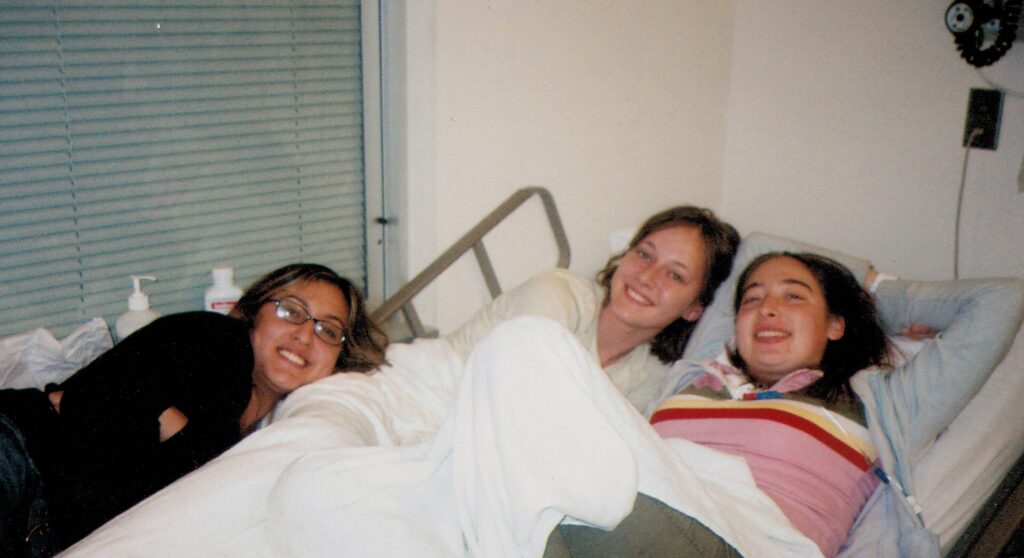
Feeling like I wasn’t so alone in my experiences would have been so helpful.
I felt mostly myself again after about 6 months post-transplant. Once I was starting to feel better, I wanted to pretend it had never happened and I didn’t want to talk about it. I didn’t want to think about it. I wanted to be as normal as possible among my peer group.
It was about a year and a half or 2 years after my transplant, that I came to a personal crisis moment, where my anxiety was over, What am I doing? If I’m pretending this didn’t happen, then I’m going forward with career choices, and I’m going forward with relationships. But it did happen and I can’t ignore it. I still go to the doctor regularly. I finally saw a counselor and started to process the emotions around, how I recognize cancer as a part of myself, but not as defining myself.
I very much wish that I had been willing to talk to others. There are many wonderful survivors that I have met in the last 18 years, and I so wish that I had been able to find a cohort or felt like I could have reached out just to say, tell me what your experience was like. Tell me what your life is like today. I’m going through this really hard part right now, how did you deal with that? Tell me it’s not going to be like this all the time.
Feeling like I wasn’t so alone in my experiences would have been so helpful. Those opportunities did exist and I chose not to take them. If my 40-year-old self could talk to my 22-year-old self, I would have a lot of advice. But I think for others, there are a lot of resources out there. There are support groups all over the country. There are several organizations that really focus on multiple myeloma research as well as education.
What support groups are available to myeloma patients?
Learn about your disease and meet with other people. There are Facebook groups, there are other social media outlets, so you don’t have to leave your home. I was the youngest person my doctors had ever treated for multiple myeloma, which was again, very othering. I felt like I wasn’t like the other people in the support group. I wasn’t like any of the people I saw in the waiting room, and that was difficult.
Fortunately and unfortunately, I’ve met many other young people who have multiple myeloma all over the country, and that has been a wonderful support over the last few years. So if you’re a young person and you want somebody to talk to, reach out. I would love to connect. I do think those resources are there. I think that just knowing that there is someone like you who is going through this and has made it through parts that are feeling hard at the moment, is helpful. It’s the support we all need.
How often did you see your doctor post-transplant?
The frequency of my checkups has varied wildly over the course of the last 18 years. Initially, it was I think every month, then every 2 months, every 3 months, 4 months, and then every 6 months. Certain tests were pushed out to every year and then it was every other year.
12 years after my diagnosis, a plasmacytoma developed in my nose which required surgery and radiation, and that plasmacytoma is a solid tumor of myeloma cells. While multiple myeloma is in your bone marrow, a plasmacytoma is those same pesky cells, but it’s just one solid collection in one spot. Mine happened to be in my nose. Some people call that a relapse, some don’t, since it wasn’t in my bone marrow. Whatever you call it, that was in 2017 and then my appointment frequency increased again after that.
What treatment did you receive for your plasmacytoma?
For the plasmacytoma, I had surgery to remove it and then that was followed by a very targeted radiation 5 days a week for 5 weeks, which was a lot. I was trying to work full time and had a 2-year-old at home, but we made it through. I get lots of PET scans regularly, MRIs regularly, and blood work regularly. I’ve been monitoring things very closely since that.
Do you experience scanxiety?
It’s not that I am fearful of lying on the exam table. I’m fearful of walking in the building knowing that this might not be an every 6-month visit. This might become a much more regular occurrence. I walk into the building and think about the results I’m going to get in 3 to 5 days, and those results might change everything.
Every time I go in for that test, every 6 months or every 4 months, it’s the same thought. It used to be more intense, the anxiety of those appointments. Now I distract myself pretty well with the rest of my life. I still have that heart-fluttering feeling when I park the car and I’m walking into the building. I still check my email very closely in the days following to see the results pop up as soon as they’re ready. I don’t have the days of anxiety ahead of time that I did initially.
Fertility
Did you opt for fertility preservation pre-cancer treatment?
When I was diagnosed, before my autologous stem cell transplant, I was asked if I wanted to preserve my fertility by harvesting my eggs. I went to a fertility clinic where we attempted to do that and it was not successful. I’m not sure what the reason for that was, but my cancer docs didn’t want to take the time to pursue that further and felt strongly that it was time to go directly into transplant because of how my disease was progressing.
It was addressed, maybe not a lot, but it was addressed prior to treatments. I will also say I was 22 and not thinking about children, so I was okay with that. But between IVF, surrogacy, and donors, there are just a lot of options. There are also many ways to start a family. Foster care and adoption are some, and it’s complicated having cancer as your medical history, but it is not impossible. And being a cancer survivor does not make you a bad parent.
»MORE: Fertility After Cancer Diagnosis
Thinking about fertility preservation as a young cancer patient
In my experience, being a young person, one of the biggest challenges post-treatment was talking about fertility. That’s something that, as a young cancer survivor, whatever your cancer, is a big topic of discussion and there’s not a lot of info out there. Post-transplant, post-treatment, that was probably the most stressful topic to hurdle, research, figure out, and navigate.
The options are going to be different depending on each person’s situation, but there are a lot of options out there. Just like cancer treatments are advancing, fertility treatments are advancing as well. There are a lot of people out there who are willing to share their stories. So, again, if people want to reach out to me, I would be more than happy to connect and communicate more about that.
Describe your experience with survivorship
People say life is a journey. While my transplant is over, I think that the initial treatment step and initial diagnosis step chapter are completed. Cancer is going to be a part of my life forever, and I think as different parts of my life happen, I have to reexamine my life with the lens of that diagnosis always there.
The wonderful man I was dating when I was diagnosed proposed to me 8 years after we graduated. I had to think really hard, do I want to be married? Do I want to bring somebody else into this nebulous? I don’t know how long I’m going to be around. When we got married we talked about, do we want to have kids? Is that something that I could do? Logistically, can I physically do that? But also, is it responsible to bring someone into this world if I might not be around for their whole life or even a significant part of it? We just don’t know the future.
Reflections
The importance of working with a myeloma specialist
I was very lucky to live in Seattle. We have a world-renowned cancer center, the Fred Hutch, right here in our city. My initial referral was with them and I was able to be treated from the start by a myeloma specialist. That said, I know many people who that’s not the case.
My physician at the cancer center works often with doctors in general oncology offices throughout the state and throughout the region providing guidance and second opinions and is always willing to do that. I think most of them are because the research is changing so fast and the treatment options are changing so fast, you really, really need to have somebody who is dedicated directly to studying myeloma and knowing what the best options might be for you.
»MORE: Multiple Myeloma in 2023
How has cancer changed your outlook on life?
Knowing that a relapse could happen at any time changes the way you appreciate every big decision in life, period. I think about saving for a retirement and it’s like, is it worth it? Life insurance, all of these things, it’s like, what am I thinking about in these choices?
Cancer is going to be a part of my life forever, and I think as different parts of my life happen, I have to reexamine my life with the lens of that diagnosis always there.
To be really honest with you, I waffle back and forth a lot between super optimistic and super pessimistic. I try not to make any decision off the cuff and I let my emotions go through all of those positive and negative feelings and have very open communication with my partner. We talk optimistically, but realistically as well. You’re always processing. There’s always something else to think about, I don’t think it’s all negative.
I have a lot of fears about missing out on my kid’s life as they get older. I also think that I am blessed to use the lens of a cancer diagnosis to value each and every day and each and every moment with them in a way that I don’t know that I would if I hadn’t had that experience with cancer. It’s not all bad. I feel closer to people who have been with me through some of those hard times. I have wonderful relationships. I have a great support team. I’m able to value the little things and maybe not get as upset about the small stuff as I think I would be if this wasn’t part of my life.
What advice do you have for myeloma patients?
Myeloma is a very different disease for different people and your experience is your own. Reach out for support. There are a lot of people out there who are going through similar situations and everyone needs a friend. Not everybody’s situation is going to be the same.
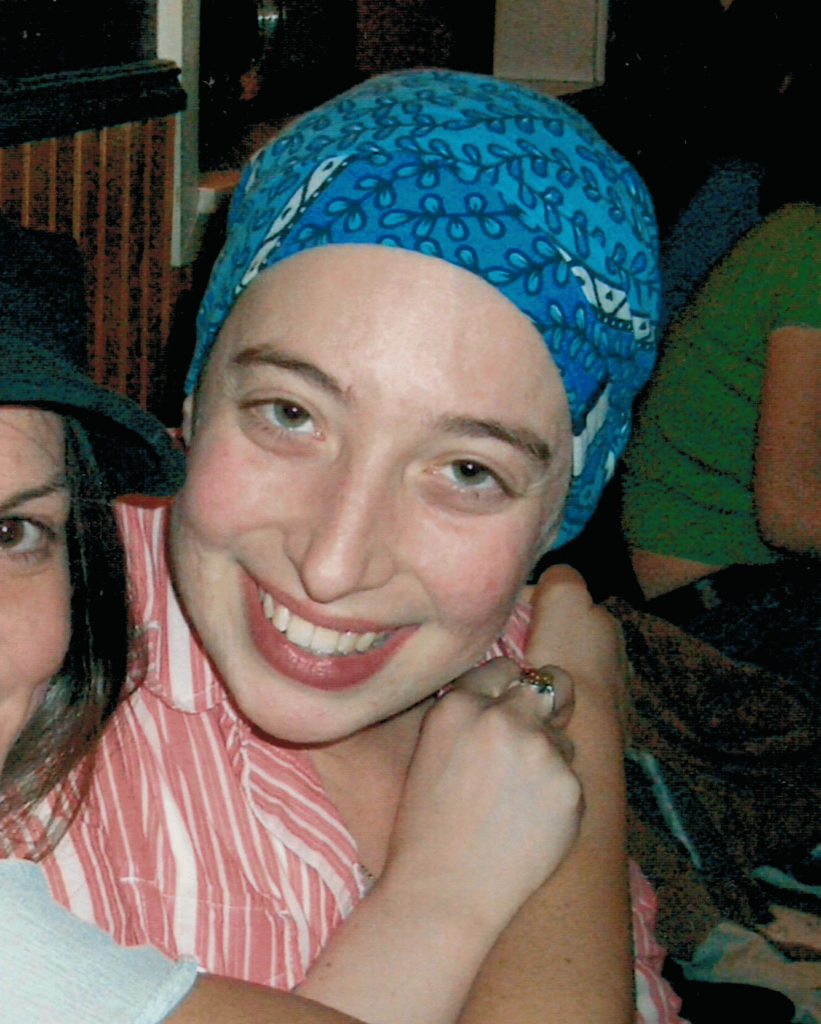
I have a lot of fears about missing out on my kid’s life as they get older. I also think that I am blessed to use the lens of a cancer diagnosis to value each and every day and each and every moment with them in a way that I don’t know that I would if I hadn’t had that experience with cancer.
Find a really good doctor. If you don’t, find a second opinion. Make sure you have a myeloma expert helping to guide your care. You don’t have to have a myeloma expert as your primary doctor, but have them as a second opinion. Have them help and advise because they’re the ones who know the newest research and what might work best for somebody with your demographics or your type of myeloma. It’s okay to be scared, it’s okay to be vulnerable, and it’s okay to ask for help, which was the hardest part for me.
More Multiple Myeloma Stories
Clay D., Relapsed/Refractory Multiple Myeloma
Symptoms: Persistent kidney issues, nausea
Treatments: Chemotherapy (CyBorD, KRd, VDPace), radiation, stem cell transplant (autologous & allogeneic), targeted therapy (daratumumab), immunotherapy (elotuzumab)
...
Melissa V., Multiple Myeloma, Stage 3
Symptom: Frequent infections
Treatments: IVF treatment & chemotherapy (RVD) for 7 rounds
...
Elise D., Refractory Multiple Myeloma
Symptoms: Lower back pain, fractured sacrum
Treatments: CyBorD, Clinical trial of Xpovio (selinexor)+ Kyprolis (carfilzomib) + dexamethasone
...
Marti P., Multiple Myeloma, Stage 3
Symptoms: Dizziness, confusion, fatigue, vomiting, hives
Treatments: Chemotherapy (bortezomib & velcade), daratumumab/Darzalex, lenalidomide, revlimid, & stem cell transplant
...
Ray H., Multiple Myeloma, Stage 3
Symptoms: Hemorrhoids, low red blood cell count
Treatments: Immunotherapy, chemotherapy, stem cell transplant
...
